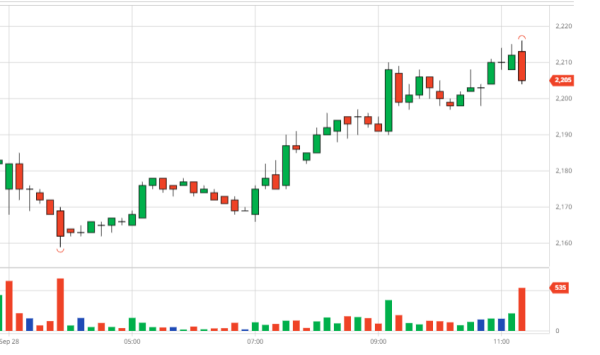The market was optimistic again when the BoE stepped up buying long-term bonds to limit risks, supporting the bull market…

Robusta chart London 11/2022 session on September 28, 2022
At the end of the session, the price of Robusta coffee on ICE Europe – London reversed to recover. The November spot term increased by $28, to $2,208 per tonne and the January delivery term in January 2023 increased by $20 to $2,198 per ton, very significant increases. Trading volume maintained in maverage breast.
Similarly, the price of Arabica coffee on the ICE US floor – New York has the same trend of recovery. The December spot futures increased by 4.35 cents to 228.70 cents/lb and the March delivery term increased by 3.30 cents to 219.60 cents/lb, strong gains. Trading volume above average.
The price of green coffee beans in the Central Highlands provinces increased by 400-500 VND, to ranged in the range of 47,400 – 47,900 VND/kg.
USDX’s sharp decline has supported most commodity markets in general during a volatile session.
The European Central Bank (ECB) said that the old continent is lagging behind the rest of the world, which has increased risk aversion, forcing it to be strong enough to make immediate adjustments. The focus at the moment is on the UK, with inflation expected to surpass 13% by the end of the year, prompting the BoE to buy back long-term bonds to stabilize the market after the International Monetary Fund (IMF) calls on the British government to reconsider its tax cut plan.
After the announcement of a £45 billion tax cut package that forced Commodity Funds to liquidate their positions, the £65 billion buyback of long-term bonds spurred Commodity Funds to return to buying. .
The return of optimism has supported most of the commodity markets with a very significant increase. Coffee prices rebounded strongly because Brazil is about to enter the Presidential election on Sunday, October 1, while the Reais rate increased slightly by 0.52%, to 1 USD = 5,3500 R$ due to There are too many risks out there.
English (giacaphe.com)
